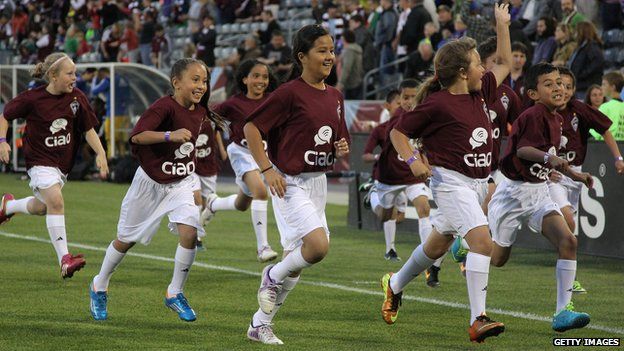US 'soccer moms' sue Fifa over concussions
- Published

A group of young American footballers and their parents have sued Fifa and US football groups over the risks from concussions.
The California class-action lawsuit accuses the sport's governing bodies of acting "carelessly and negligently" and failing to protect young players.
The filing also calls for new safety rules, including limiting the number of headers for young players,
The US collegiate sports authority settled a similar suit last month.
The National Collegiate Athletic Association (NCAA) agreed to toughen rules over how long players have to rest after a head injury, and to create a multi-million dollar fund to test athletes for brain trauma.
The Fifa suit, filed by two former youth football players and parents of current young players, does not seek monetary damages, but calls for a medical monitoring programme for those who played football as children and young adults and may have suffered concussions.
The filing argues "there is an epidemic of concussion injuries in soccer at all levels around the world" and that "Fifa presides over this epidemic and is one of its primary causes" through its ability to set the rules of the game.
The US Soccer Federation, US Youth Soccer Associations and several other football groups are also named as defendants.
A Fifa spokeswoman told US media they had no comment as they had not yet seen the lawsuit.
The spokeswoman, Delia Fischer, told the Bloomberg website the association has assigned a "high priority" to prevention and treatment of head injuries, and has "clear recommendations" for team doctors.
The lawsuit particularly focuses on heading, citing research that the practice is more damaging for young people because their neck muscles are weaker and cannot slow the impact of the ball on the head.
Among the changes sought are limiting the number of times a player under 17 can head the ball and allowing temporary substitutions in professional leagues if a player has received a head injury.
- Published29 July 2014
- Published7 July 2014